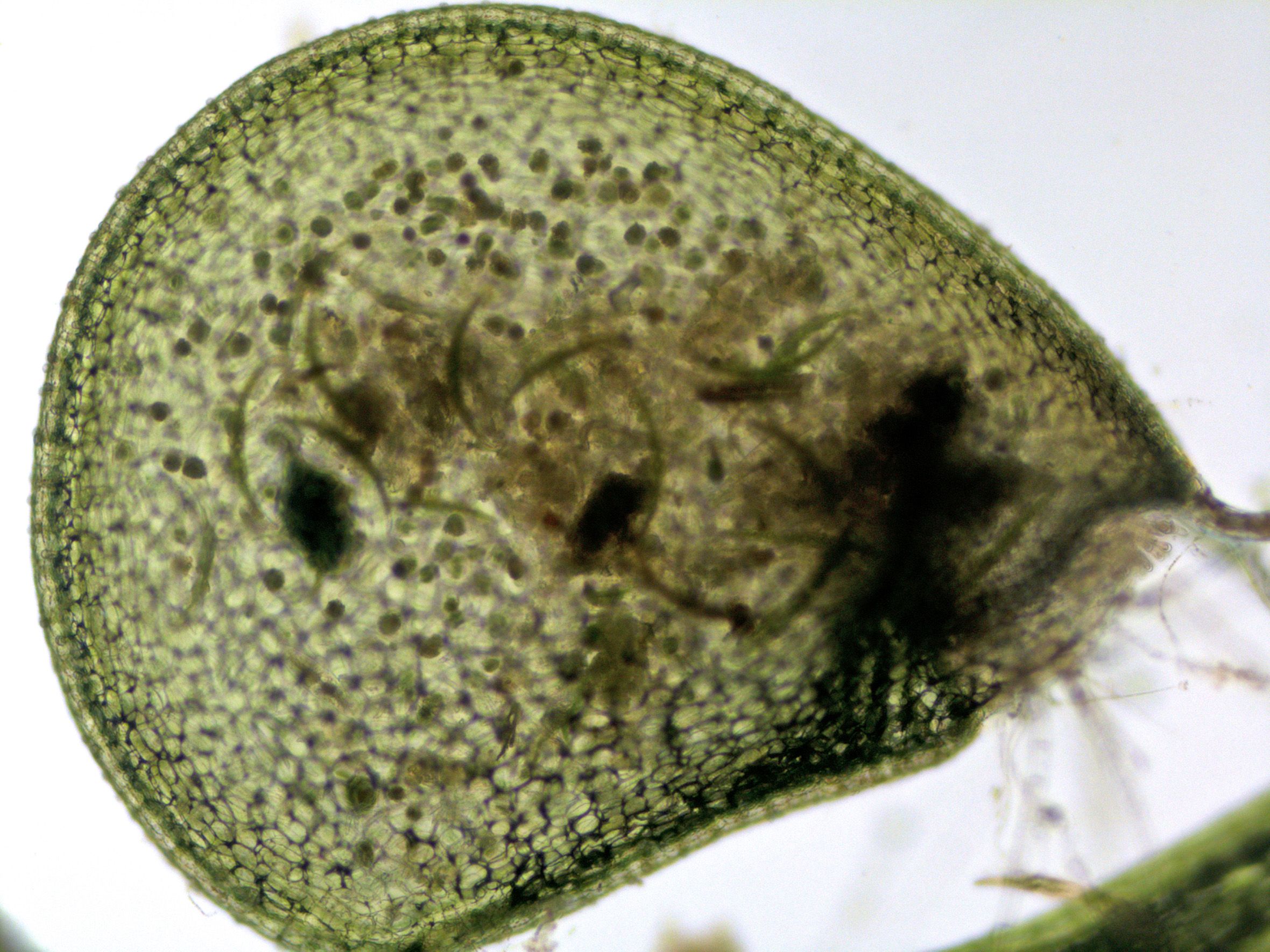
Behold the bladderwort. These plucky little plants — 200-plus species strong — are found worldwide, live in moist soil or within lakes, streams and wetlands, and have pretty flowers that resemble orchids, at least to an untrained eye like mine. They also possess a hidden superpower: tiny underwater traps that can catch anything from a microscopic worm to a small minnow in a fraction of a second.
The traps of these carnivorous plants are set off when an animal comes by, tripping sensitive hair cells that trigger an influx of water — along with the plant's new meal.
Until recently it was thought that the bladderwort feasted almost entirely on animal prey, as the label "carnivorous" implies. But new research shows that some of these plants, and other so-called carnivores, are actually primarily vegetarians.
In a study published in the Annals of Botany, Marianne Koller-Peroutka, Wolfram Adlassnig and others from the University of Vienna showed that three species of Utricularia (the genus, or taxonomic grouping above species, that comprises bladderworts) mostly eat algae and other non-animal matter.
The team analyzed the contents of these plants' little traps, and then measured how well the plants were growing, as quantified by the number of branches they contained. They found that the more vegetable matter a plant caught, the larger it grew. In one species, 90 percent of the trapped material was made up of algae and pollen, the pair wrote in an email.
"Thus, to the great satisfaction of any biologist, the bladderwort has evolved not to waste energy and resources but to utilize any source of nutrients," they noted.
This adds to recent work showing that a type of carnivorous pitcher plant (Nepenthes ampullaria) uses "its cone-shaped trap leaves to collect dead leaves falling from the canopy instead of trapping animals," they wrote. And another species, called a butterwort, has sticky leaves that, besides ensnaring unsuspecting insect visitors, also collects and digests pollen, and uses this flower power to increase its own blossom production.
Uncommon Knowledge
Newsweek is committed to challenging conventional wisdom and finding connections in the search for common ground.
Newsweek is committed to challenging conventional wisdom and finding connections in the search for common ground.
About the writer
Douglas Main is a journalist who lives in New York City and whose writing has appeared in the New York ... Read more
To read how Newsweek uses AI as a newsroom tool, Click here.








